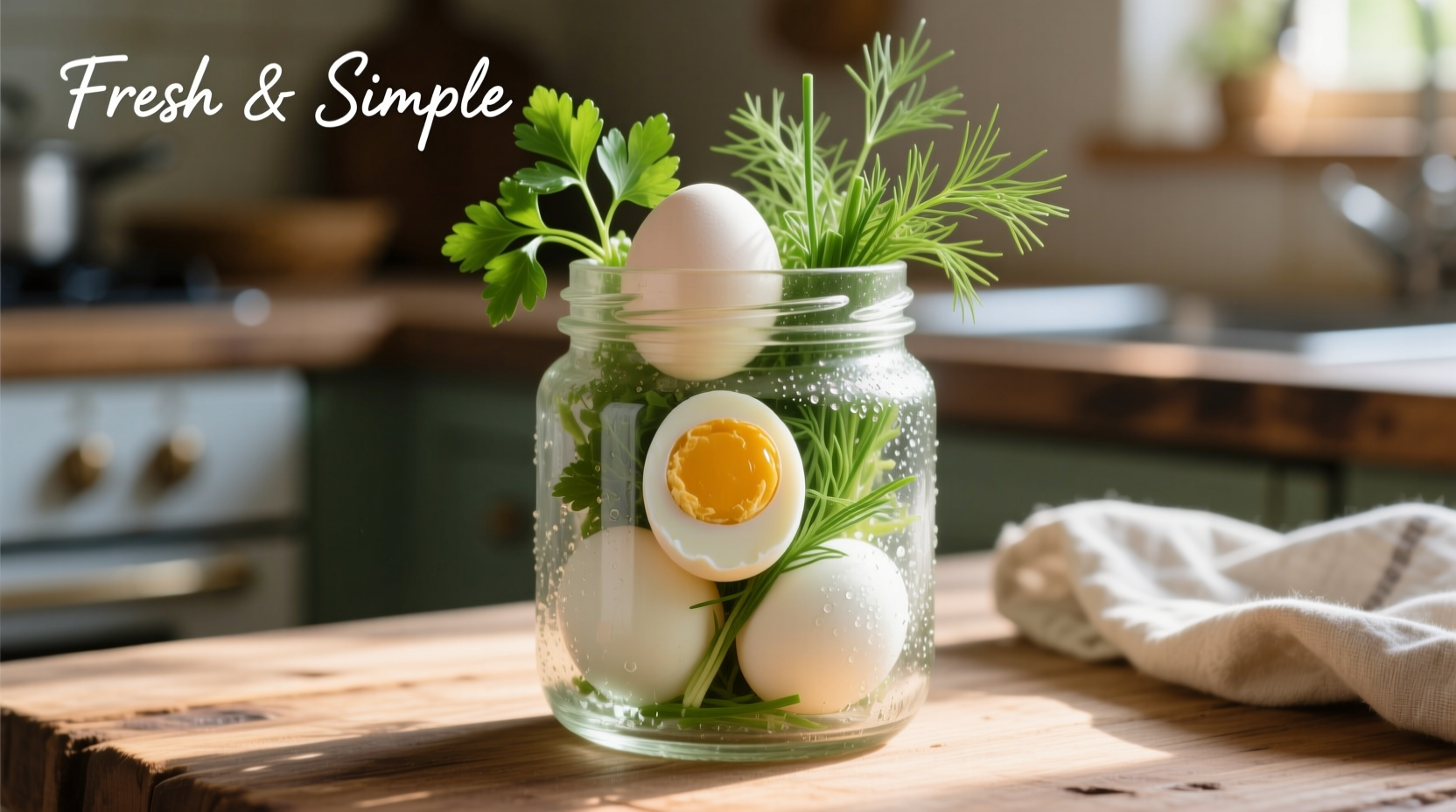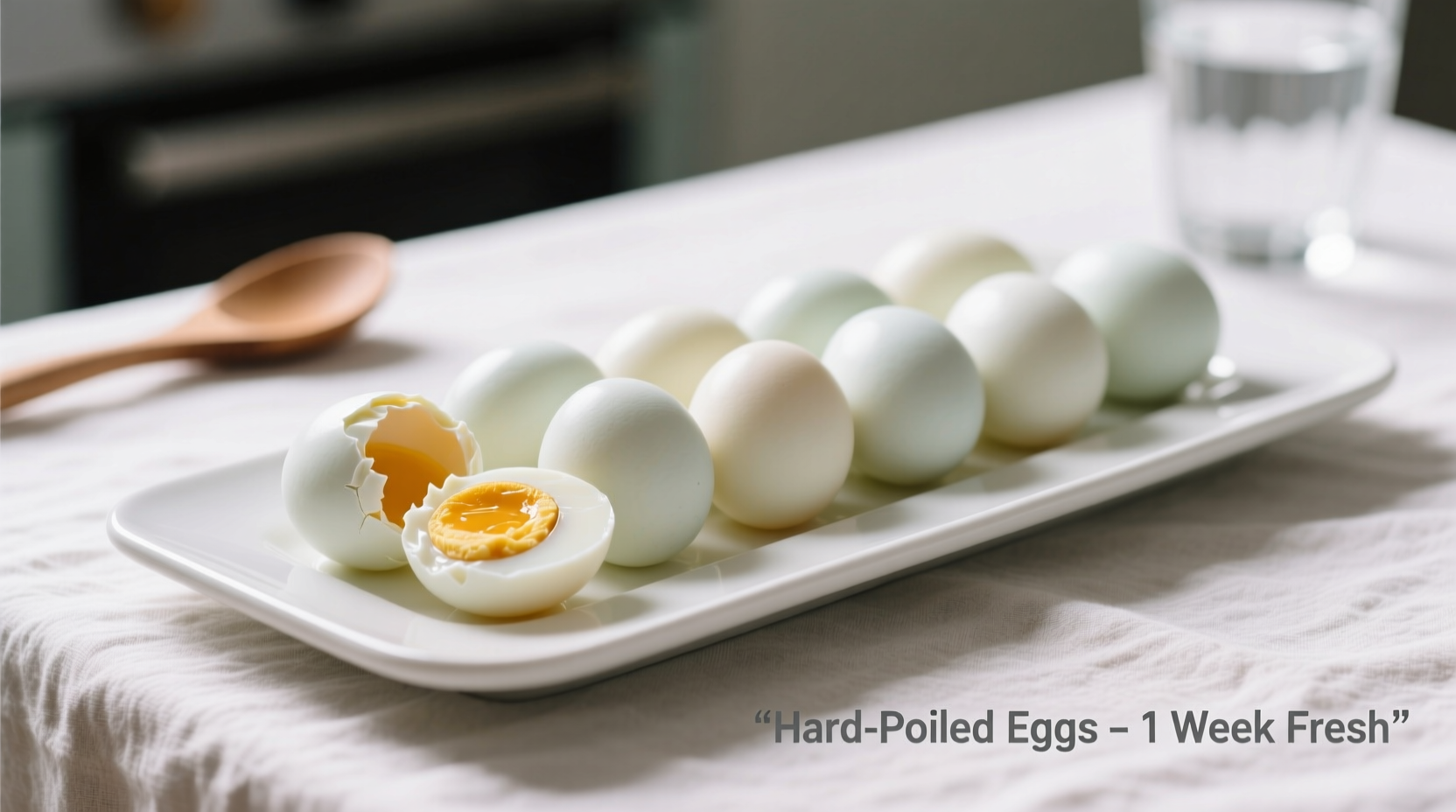Ever煮 a dozen eggs for meal prep only to wonder how long do hard cooked eggs keep before they become unsafe? You're not alone. Proper egg storage prevents foodborne illness while maximizing your kitchen efficiency. Let's explore exactly how to store hard-boiled eggs safely and recognize when it's time to discard them.
Why Proper Hard-Boiled Egg Storage Matters
Hard-boiled eggs present unique food safety challenges compared to raw eggs. The cooking process removes the egg's natural protective coating, making the shell more porous and susceptible to bacterial contamination. USDA research shows that Salmonella bacteria can multiply rapidly on cooked eggs left at room temperature.
"Many people don't realize that hard-boiled eggs have a much shorter shelf life than raw eggs in the shell," explains food safety expert Dr. Catherine Strohbehn from Iowa State University Extension. "The protective bloom is destroyed during boiling, creating pathways for bacteria to enter."
Step-by-Step Storage Guide for Maximum Freshness
Cooling Properly After Cooking
Immediately transfer cooked eggs to an ice water bath for at least 15 minutes. This rapid cooling:
- Stops the cooking process
- Prevents green rings around yolks
- Creates condensation that helps maintain shell integrity
- Reduces bacterial growth risk
Optimal Refrigeration Techniques
For best results when storing hard cooked eggs:
- Keep eggs unpeeled until ready to eat (peeled eggs last only 5-7 days)
- Place in an airtight container (not the original egg carton)
- Store in the main refrigerator compartment (not the door)
- Maintain temperature at or below 40°F (4°C)
- Write the cooking date on your container
| Storage Method | Shelf Life | Quality Notes |
|---|---|---|
| Unpeeled in airtight container | 7 days | Best texture and flavor retention |
| Peeled in water (changed daily) | 5 days | Prevents drying but may affect texture |
| Room temperature | 2 hours | Discard after 2 hours per USDA guidelines |
| Freezer (peeled only) | 1 year | Best for egg salad, not whole eggs |
How to Tell If Hard-Boiled Eggs Have Gone Bad
Don't risk food poisoning by guessing. Check for these clear spoilage indicators:
Visual Inspection
Look for:
- Discoloration of whites (pink, green, or black spots)
- Cloudy appearance in the egg white
- Unusual texture or slimy film
Smell Test
The most reliable indicator. Fresh hard-boiled eggs have a mild, pleasant aroma. Discard immediately if you detect:
- Sulfur or rotten smell (even when unpeeled)
- Vinegar-like odor
- Any unpleasant or "off" smell
Float Test
Place the egg in a bowl of cold water:
- Fresh eggs sink and lay flat
- Older but still safe eggs stand upright on the bottom
- Bad eggs float to the surface (discard immediately)

Common Storage Mistakes That Shorten Shelf Life
Avoid these frequent errors that compromise how long hard cooked eggs keep:
Leaving Eggs at Room Temperature
USDA guidelines state cooked eggs shouldn't remain at room temperature for more than two hours (or one hour if temperatures exceed 90°F/32°C). Many people mistakenly leave decorated Easter eggs out for days, creating serious food safety risks.
Storing in the Original Carton
Egg cartons are designed for raw eggs, not cooked ones. The porous cardboard can absorb refrigerator odors and doesn't provide an airtight seal, accelerating moisture loss and bacterial growth.
Peeling Too Early
Peeling hard-boiled eggs before storage reduces their shelf life by nearly 40%. The shell provides a protective barrier that keeps moisture in and contaminants out.
Special Considerations for Different Egg Preparations
Deviled Eggs and Egg Salad
Once you've combined hard-boiled eggs with other ingredients:
- Deviled eggs last 2 days refrigerated
- Egg salad keeps 3-4 days
- Always store in airtight containers
- Discard if mayo-based mixtures separate
Pickled Eggs
Properly prepared pickled eggs can last 3-4 months in the refrigerator. However, ensure:
- Vinegar solution completely covers eggs
- Storage container is sterilized
- No signs of mold or cloudiness appear
Maximizing Freshness for Meal Prep
For those wondering how long do hard cooked eggs keep when planning weekly meals:
- Cook and store eggs on Sunday for Monday-Saturday consumption
- Place a damp paper towel in the container with peeled eggs
- Store eggs away from strong-smelling foods like onions
- Use older eggs first (check your dated container)
"I recommend writing the boiling date directly on each egg with a food-safe marker," suggests Antonio Rodriguez, culinary expert. "This eliminates guesswork and prevents food waste by ensuring you use eggs before they expire."
When in Doubt, Throw It Out
Food safety experts universally agree: if you're uncertain about an egg's freshness, discard it. The risk of Salmonella poisoning isn't worth the few cents an egg costs. Symptoms of foodborne illness from spoiled eggs typically appear 6-48 hours after consumption and include nausea, vomiting, diarrhea, and abdominal cramps.
Frequently Asked Questions
Can hard-boiled eggs be frozen?
Yes, but only the yolks or mashed eggs for recipes like egg salad. Freezing whole hard-boiled eggs makes whites tough and rubbery. Store frozen egg yolks in airtight containers for up to 1 year.
Do hard-boiled eggs last longer peeled or unpeeled?
Unpeeled hard-boiled eggs last significantly longer—up to 7 days refrigerated versus 5 days for peeled eggs. The shell provides a protective barrier against moisture loss and bacterial contamination.
Why do some hard-boiled eggs develop a green ring around the yolk?
The greenish-gray ring forms when eggs are overcooked, causing a chemical reaction between sulfur in the egg white and iron in the yolk. While safe to eat, it indicates reduced quality. Prevent it by not boiling eggs for more than 12 minutes and cooling immediately in ice water.
Can you eat hard-boiled eggs after 10 days?
No, hard-boiled eggs should not be consumed after 7 days under proper refrigeration. USDA guidelines clearly state that hard-boiled eggs expire after one week. Consuming older eggs risks foodborne illness from bacterial growth.
What's the best container for storing hard-boiled eggs?
Use a rigid, airtight container made of glass or BPA-free plastic. Avoid egg cartons as they're not airtight and can harbor bacteria. For peeled eggs, store in a container with a damp paper towel to maintain moisture without waterlogging.











 浙公网安备
33010002000092号
浙公网安备
33010002000092号 浙B2-20120091-4
浙B2-20120091-4